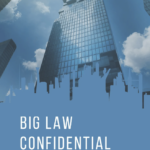Biglaw Partner Learns The Hard Way: Don't Talk Smack About Your Firm's Clients
Even partners screw up.
 Welp, this was a hell of an oopsie moment. In one sense, it is nice to see that even Biglaw partners have them — and in very public ways. But that’s cold comfort to the client who found themselves high and dry after a partner screwed up.
Welp, this was a hell of an oopsie moment. In one sense, it is nice to see that even Biglaw partners have them — and in very public ways. But that’s cold comfort to the client who found themselves high and dry after a partner screwed up.
Here are the details: Pillsbury Winthrop Shaw Pittman partner Todd Canni represents Continental Service Group, which lost its bid for a contract with the federal government to collect overdue student loans. Canni was upset that his client missed out on the opportunity to harass deadbeats to Performant Financial Corp. (who has ties to Education Secretary Betsy DeVos), so he gave this statement to the Washington Post:
“Given the fact that Performant was not a highly rated [company] and, in fact, was rated fairly low … the agency will be under intense scrutiny and will need to explain how suddenly these ratings changed so significantly to allow Performant to leap frog over so many other qualified [companies].”

The Global Legal News You Need, When You Need It
There was just one teeny tiny problem with Canni’s statement: Performant is also a Pillsbury client.
D’oh.

In federal claims court, Performant contested Pillsbury’s ongoing representation of Continental Service Group in their challenge to the Education Department’s contract award due to the conflict of interest the dual representation presents. Federal Claims Judge Thomas C. Wheeler agreed with Performant, disqualifying Pillsbury from repping Continental Service:
Sponsored

Legal Knowledge Management To Drive Dealmaking


The Global Legal News You Need, When You Need It

What Do Millennials Think Of Law Firm Life?
“The court is of the opinion that Pillsbury is not permitted to continue such representation due to the troubling course of events—and their resulting consequences—that took place throughout this bid protest.”
And whether or not Canni was aware of the other Pillsbury client was irrelevant to the judge’s decision:
“Regardless of whether Mr. Canni was aware of Pillsbury’s conflict of interest at the time he made his disparaging comments about Performant, his comments have created a breach of the duty of loyalty that cannot be cured,” Wheeler wrote. “By speaking ill of Performant—a contemporaneous Pillsbury client—to the Washington Post, Mr. Canni has created a situation where he has stunted Pillsbury’s ability to effectively and zealously advocate on ConServe’s behalf.”
As reported by Law.com, Pillsbury argued it performed a conflict check once Performant was awarded the Education Department’s contract — deemed a “corrective action” by the agency. But Performant’s 2012 name change meant the conflict was not tripped by their system:
After Performant moved to disqualify Pillsbury from the case, the firm said that it had, in fact, run an updated conflicts check following the Education Department’s “corrective action” in January. That check returned a “NO CONFLICT” result because Performant had previously gone by “Diversified Collection Services Inc.” and the system had not been updated with the company’s new name.
Sponsored

What Do Millennials Think Of Law Firm Life?

Stuck Drafting A Tough Brief? This Tool Can Help.
The real twist of irony is that Pillsbury is the very firm that advised Performant about the name change — a fact that was not lost on Judge Wheeler:
“The court understands that conflict systems are not perfect, but the irony here is that Pillsbury was the very law firm that advised Performant on its name change in 2012,” Wheeler wrote. “At the very least, Pillsbury should have either updated its conflicts system in 2012 to reflect the name change or run an additional conflicts search for ‘Diversified Collection Services Inc.’ knowing that the name change had taken place.”
Wheeler continued: “To claim that Pillsbury should be in the clear because it received a ‘NO CONFLICT’ result simply does not hold water, especially given Pillsbury’s knowledge of and advisement on Performant’s name change.”
Let this be a lesson to all lawyers out there — before you go to the press to talk sh*t about a company, make sure that company isn’t on the firm’s Christmas card list.
 Kathryn Rubino is an editor at Above the Law. AtL tipsters are the best, so please connect with her. Feel free to email her with any tips, questions, or comments and follow her on Twitter (@Kathryn1).
Kathryn Rubino is an editor at Above the Law. AtL tipsters are the best, so please connect with her. Feel free to email her with any tips, questions, or comments and follow her on Twitter (@Kathryn1).







